
Do you have what you need to make your garden grow?


Garden Center
Store Hours
Mon-Sat:
6:00am - 9:00pm
Sun:
8:00am - 8:00pm
Curbside:
09:00am - 6:00pm
Location
Popular at Your Garden Center
Trending Garden Supplies in May
Trending Live Plants
Garden Project Calculators
;Resize=(703,395.44))
Grass Seed Calculator
When you're ready to seed your lawn, our calculator helps you estimate the amount of grass seed you'll need to get the job done.
;Resize=(703,395.44))
Mulch Calculator
Enter your preferred material, the square footage and mulch depth of the coverage space for accurate results.
;Resize=(703,395.44))
Fencing Calculator
We'll calculate the amount of fencing you should purchase based on your property needs.
Shop Outdoor and Garden Brands
Frequently Asked Questions About Gardening
Which planting zone am I in?
Check the USDA plant hardiness zone map, as planting zones have shifted slightly through the years. Zones with higher numbers can plant earlier in the year. Choose plants that are meant for your zone and increase your odds of gardening success.
What does direct sowing mean?
If the soil is pliable and warm, consider planting your fruit, flower, or vegetable seeds directly into your garden. This is called the "direct sow" method. Plant after the threat of frost is gone for the season, as seedlings and sprouts can't weather those conditions. You can also start your seeds indoors if you'd like. Consult your seed package for when and how to sow seeds.
Do you carry organic seeds and plants?
Yes, we've got a variety of organic options, including organic fruit seeds and veggie seeds, as well as organic herb and flower seeds that are subject to availability. We carry the organic soil to plant them in as well as the organic fertilizer to feed your plants.
Do I have to harden off my seedlings before planting them outside?
Yes, for best results, if you raised plants indoors from seeds in your own plant nursery, harden them before you transplant them. Hardening allows your seedlings to adjust to the great outdoors, making them more resilient against cold snaps. It slows their growth until they're strong and ready to take off during a spring warm front.
How do I plant a transplant or baby plant?
Squeeze the plastic around the plant to loosen the soil. Carefully coax the plug of dirt with the plant into your palm, then place it into the hole you dug for it. Make sure the top of your transplant's soil is even with the garden soil, and carefully press the earth into place. Avoid leaving the plant as an island in a puddle of water, and don't tamp down the ground too tightly. Your plant baby needs to breathe.
What are seed tapes?
If you want more guidance in planting or are dealing with extremely tiny seeds, consider seed tapes. They're biodegradable pieces of paper with tiny seeds affixed at regular intervals. Just bury the tape and water as directed. If all goes well, your perfectly spaced sprouts will pop up soon.
Garden Project Ideas
The Home Depot Garden Center at Windham
Celebrate Springtime Gardening
It's time to start thinking of spring. Clean out the shed and sweep the gazebo to prepare for warmer temperatures, fragrant breezes, and sprouts poking up out of the ground. Planting seeds indoors with grow lights means you'll be ready to transplant spring flowers and young veggie plants when the ground thaws and the frosts are through. You might even want to sow organic seeds directly into the earth. What better way to start than by exploring your favorite local plant nursery, The Home Depot Windham Garden Center?
Plant Hardiness Zones Explained
The first thing you should know when planting vegetables, spring flowers, and other seeds is your planting zone. Every location in the U.S. and its territories is sorted into blocks by climate. Find your zone on the USDA planting zone map and learn when to plant seeds.
For example, you could plant bell pepper seedlings outdoors in mid-March in Zone 10, but not until the end of May in Zone 4. For best results, choose plants in your zone number or less. In other words, a Zone 5 garden can support plants listed as Zones 1–5. You can plant seeds indoors roughly a month before you can plant them outside, known as direct sow. Read your seed packet for details. If you start them later than recommended, it's not ideal, but it will even out as time passes.
Gardening in Your Growing Zone
In Zone 5, which includes parts of Pennsylvania as well as upstate New York, Vermont, New Hampshire, and southern Maine, your best bets for veggies will be root vegetables like beets and carrots, leafy greens including lettuce, and cruciferous veggies like cabbage and kale. You can try squash, but prepare for additional warming upkeep when late frost is forecast. Target planting dates are roughly mid-March through May 1st, depending on whether you're directly sowing them into your garden or starting your seeds indoors.
Much of Ohio, Pennsylvania, West Virginia, Connecticut, Massachusetts, southern New York state, and New Jersey are in Zone 6, so planting can begin earlier there than farther north. Parts of Virginia are even warmer, coming in at Zone 7. The outdoor growing season doesn't begin until mid-March or even April, although you can plant some veggie seeds halfway through February. Tomatoes, cucumbers, peppers, squash, onions, and other classic garden crops will thrive in this region, and most of them can get an early start indoors before spring really moves in.
Plant Seeds Outside With Direct Sow
Planting seeds with the direct sow method, right into the soil, is another option. There's less planning and tending than growing indoors. If you like to go with the flow, follow the instructions on your seed package and try it out.
Your seeds might struggle to grow or get washed away, or critters or insects might eat the sprouts. But if you're really lucky, you might get a strong sprout from each place you sowed seeds, perfectly spaced and ready to grow all spring. The reality of your garden will usually be somewhere in between, and spreading out tiny sprouts throughout the soil isn't so bad. You know those sprouts are primed to survive, although there are no guarantees.
Start Seeds Indoors
If you're eager to get growing or would like more control in the care and feeding of seedlings, start your seeds indoors in your own plant nursery. In general, you can plant seeds indoors about a month before you can do it outside. Like direct sow, you push the seeds into the soil as directed on the seed packet, but that's where the similarities end.
You're responsible for giving them quality substitutes for sunlight and rain. Keep your seeds cozy with warming mats and grow lights, water them carefully with a mister or watering can, then thin them as they germinate in groups of three. Give them a boost with a gently blowing fan as they lengthen into sprouts if you'd like. Harden them off to get them used to outdoor conditions, then transplant them into your garden when they're big enough.
Transplant Young Plants Into Their New Homes
Place your transplants in the ground, then water them well. Surround them with mulch, marking where the plant is with a stick so you can easily find it among the grass clippings, old leaves, or straw. If your yard is regularly visited by deer or rodents, consider putting up chicken wire or other protective measures so your plants and veggies are less likely to get eaten before they thrive.
Protect Your Garden With Mulch
Finish your flower bed with compost and mulch. Compost enriches the soil so your garden can grow even better. It may help foster larger plants that bear more flowers and fruit. Mulch controls weeds and keeps your soil from drying out. Mulch and compost can be purchased in-store or created at home. The next time you're looking for "mulch near me," stop by the Garden Center to get the right amount.
Greet the Spring
Early spring is an exciting time in the world of gardening. Prepare to fertilize your lawn, plan your garden and landscaping, and browse The Home Depot nursery to find inspiration on which spring flowers to plant when the weather warms. For those without lawns, consider adding an outdoor rug, artificial grass, or a pellet grill to your patio or balcony. Shop for the fertilizer, soil, and seeds you need in the aisles of your Windham Garden Center, online, or on our mobile app. Let's get growing together.
Nearby Stores
Find Another Store
142 River Rd
Lisbon, CT 06351
14.29 mi
Mon-Sat: 6:00am - 9:00pm
Sun: 8:00am - 8:00pm
1932 Norwich-new London Tpke
Uncasville, CT 06382
18.31 mi
Mon-Sat: 6:00am - 9:00pm
Sun: 8:00am - 8:00pm
80 Buckland Hills Dr
Manchester, CT 06042
20.10 mi
Mon-Sat: 6:00am - 10:00pm
Sun: 8:00am - 8:00pm
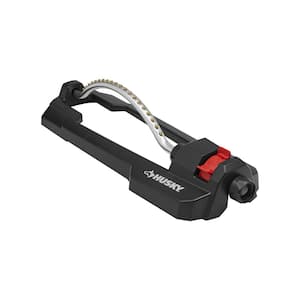
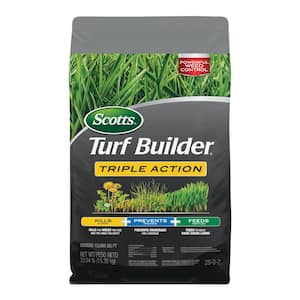
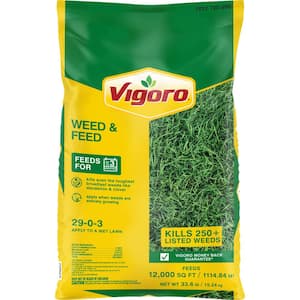
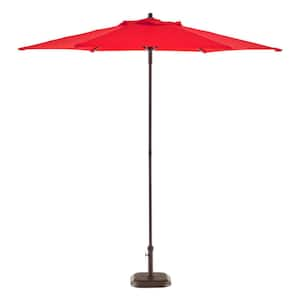
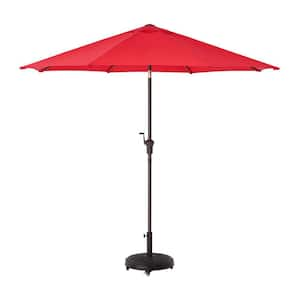
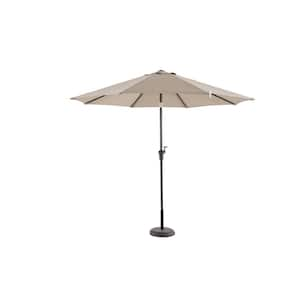
)
)
/17_514245_S_012_Product%20Image%20(square).jpg?im=Resize=(300,300))
;Resize=(300,300))
)
)
)
)
)
/2023_P2_Rain_Barrels_Product%20Image%20(square).jpg?im=Resize=(300,300))
)
;Resize=(300,300))
;Resize=(300,300))
;Resize=(300,300))
/12_SOIL_B_0420_Social%20media%20(square).jpg?im=Resize=(300,300))
;Resize=(300,300))
)
)
;Resize=(300,300))
;Resize=(300,300))
;Resize=(300,300))
;Resize=(300,300))
)
)
;Resize=(300,300))
;Resize=(300,300))
;Resize=(300,300))
;Resize=(300,300))
;Resize=(300,300))
)
/18Patio_Camden_Seagrass_5pcSeating_Planters_302468736_DTL3_L_Social%20media%20(square).jpg?im=Resize=(300,300))
;Resize=(300,300))
;Resize=(300,300))
;Resize=(300,300))
)
;Resize=(300,300))
;Resize=(300,300))
)
;Resize=(300,300))
)
.jpeg?im=Crop,rect=(363.69230769230774,1.2307692307692308,958.7692307692308,958.7692307692308);Resize=(300,300))
;Resize=(300,300))
)
;Resize=(300,300))
;Resize=(300,300))
)
;Resize=(300,300))
)
)
;Resize=(300,300))
;Resize=(300,300))
)
)
;Resize=(300,300))
)
;Resize=(300,300))
;Resize=(300,300))
)
)
;Resize=(300,300))
)
)
/Capello_Spring_Mum_10in_Social%20media%20(square).jpg?im=Resize=(300,300))
;Resize=(300,300))
)
)
;Resize=(300,300))
)
)
;Resize=(300,300))
)
)
;Resize=(300,300))
;Resize=(300,300))











































